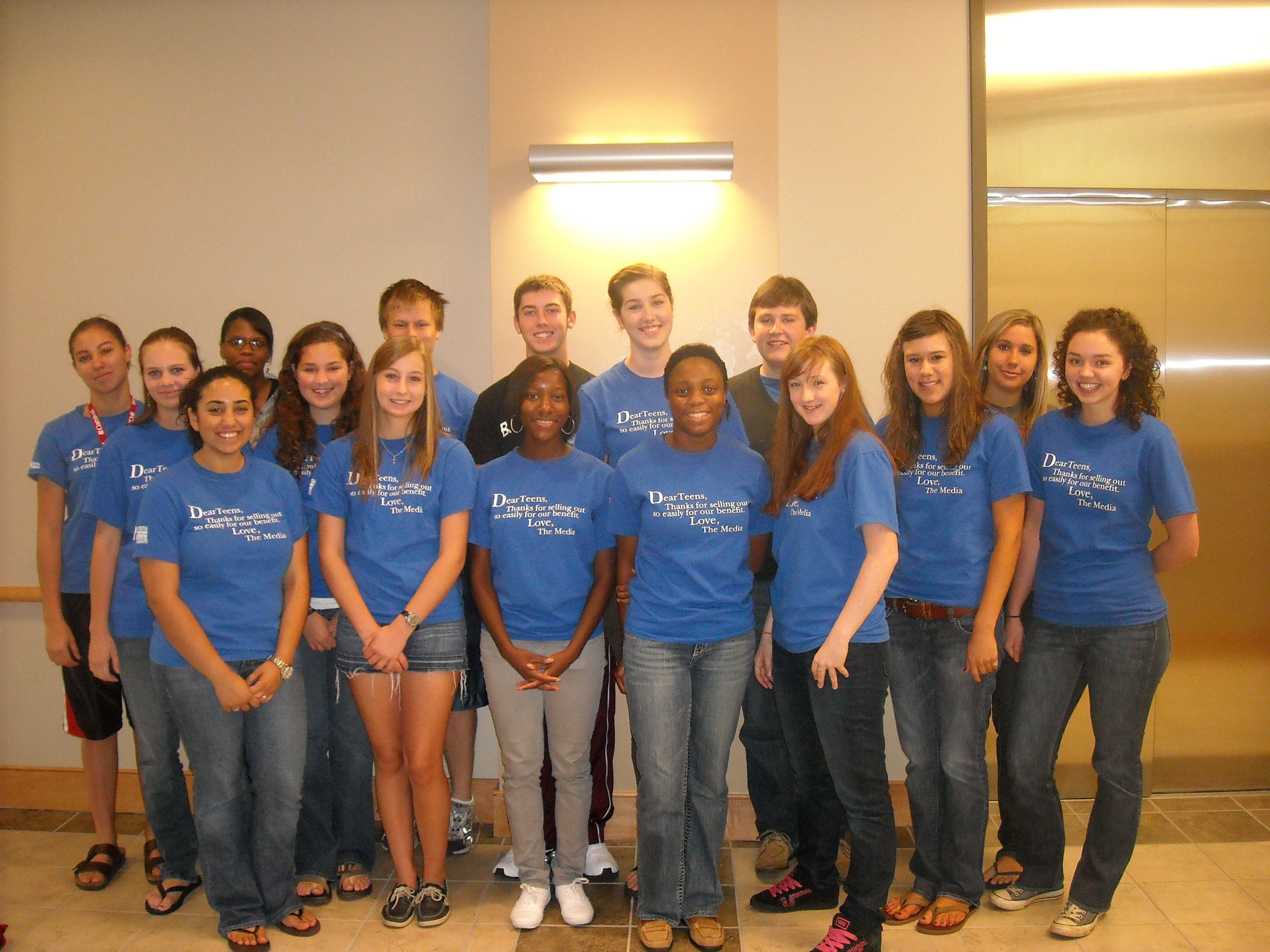Cohort 3: Media Awareness | Unmask: Mind Over Media
Cohort 3 chose to address the topic of the media’s harmful impact on teenage self perception. The purpose of the Unmask project was to counteract the negative effects of media saturation by teaching teens to think critically about their media consumption.
In their second year, the students launched a multi-faceted campaign to raise the awareness of local youth on this topic. The campaign included several elements including:
Conducted a speaking tour throughout Oklahoma, presenting at youth camps, churches and schools. The tour reached over 1500 youth.
Presented at the Oklahoma Student Council State Convention in 2011 to an audience of 3000 youth from across the state.
Served as panelists at the 2nd annual OUCEC (Oklahoma University Community Education Center) Southwest Regional Conference 2010 on the topic “Consumed: Teenage Captives in a Media- Saturated Society.
Facilitated a “Dear Media” essay contest, calling on students to write letters expressing how they feel about the media. The cohort received 75 submissions to the contest, and awarded the winners small cash prizes.
The awareness campaign culminated in the University of Oklahoma-Tulsa’s Seed Sower Series. Cohort 3 partnered with OU-Tulsa to organize the 2010 edition of the university’s annual public-facing lecture series. The students organized a series of three evening lectures delivered on a weekly basis in spring 2010. For the first two lectures, the students identified expert guest speakers and worked with them to tailor the topic of their presentations. The first speaker was media expert Erin Walsh from the National Institute on Media and the Family, who the students flew in to Tulsa for the occasion. Ms. Walsh spoke on the topic of the power of major media conglomerates.
The second speaker was Dr. Robert Block, president of the Academy on Violence and Abuse, who spoke on the media’s harmful youth-oriented messaging related to sexuality, drug abuse and other topics. The third and final lecture was conducted by the students themselves, who spoke on the topic of how teenagers can recognize and resist the negative effects of media.
In year three of the program, the cohort converted their materials from the awareness campaign into a video curriculum and infographics. The materials were made available on their project website for free public use.
To find a permanent home for their materials, Cohort 3 ultimately chose to partner with the Search Institute, a non-profit that promotes youth development through research. The project’s materials were made publicly available on the Search Institute’s website, which attracts over 65,000 unique visitors per month.
In an interview, Erin Walsh reflected on the high quality and utility of the students’ materials in her own work advocating for media awareness: “The students made excellent materials that I continue to share with partners. I shared their video materials at multiple speaking engagements and conferences. Their work was so valuable in showing that young people have a critical lens on a topic that is usually dominated by adult perspectives.”
“I spend a lot of time speaking across the country, but the YPI experience really stuck out. It is so rare to have a youth perspective on this topic – usually the approach is command and control by adults,” said Erin.
Erin also suggests that the students were ahead of the curve in selecting this focus issue. “At the time everyone [in media expert circles] was talking about internet safety. I remember being very excited that the students were focusing on an area that was under addressed... They had a clear understanding of their angle and what they wanted me to do. That shows a lot of research into this field...”
“The [YPI] model felt really exciting and powerful, especially since we had funding... It is so rare that young people are given the time and resources to reclaim narratives and have efficacy in the media space. I would love to see more of that.”




